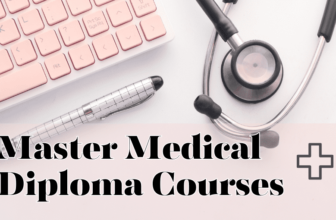
Introduction
The Rise of Medical Diploma Courses
The healthcare industry is one of the fastest-growing sectors today. Within it, diploma courses have recently received considerable attention. What’s causing this sudden interest?
Table of Contents
The Purpose of the Article
Is the hype around Medical Diploma Courses justified? Let’s dive in and find out.
Why Medical Diploma Courses Are Gaining Popularity
Accessibility
Unlike traditional degree programs, diploma courses are more accessible. They require fewer prerequisites, making it easier for people to enrol.
Affordability
These medical diploma courses are generally cheaper than full-fledged degree programs. That makes them more attractive to those on a budget.
Shorter Duration
We’re talking months, not years. This shorter study period allows for quick entry into the job market.
The Various Types of Medical Diploma Courses
Medical Laboratory Technology
Learn to diagnose diseases by examining tissues, fluids, and other samples.
Radiology
Ever thought about what it takes to produce X-rays? Radiology courses teach just that.
Nursing
A great option for those looking to engage directly with patients in a caregiving capacity.
Phlebotomy
Are you intrigued by the thought of drawing blood for tests? Phlebotomy is your gateway.
Comparing Diploma Courses to Degree Programs
Time
Diploma courses are shorter, usually lasting 1-2 years, compared to 4 years for a degree.
Cost
Degrees are generally more expensive due to longer duration and more comprehensive coursework.
Depth of Study
Degree programs cover a broader subject matter, offering a more well-rounded education.
Pros of Medical Diploma Courses
Quick Entry into the Workforce
Get in, get out, and get working. Diploma courses offer this advantage.
Skill Specialization
You’ll focus on specific skills, quickly making you an expert in your chosen field.
Networking Opportunities
Smaller class sizes in diploma courses often mean better networking opportunities.
Cons of Medical Diploma Courses
Limited Career Growth
There’s a ceiling to how far you can go without further education.
Less Comprehensive Education
You’ll learn much, but more than in a degree program.
Accreditation and Quality
Importance of Accreditation
Always ensure the course is accredited to provide quality education.
How to Check Accreditation
Most legitimate courses will proudly display their accreditation on their websites.
The Job Market
Job Opportunities
From hospitals to private clinics, the opportunities are vast.
Salary Expectations
While good, expect lower salaries compared to those with full degrees.
Who Should Consider Medical Diploma Courses?
Career Switchers
These courses can be a godsend if you’re looking to switch careers quickly.
Those interested in Specific Fields
If you have a specific skill you want to master quickly, a diploma course may be for you.
Case Study: A Real-Life Example
Meet John, a 30-year-old who successfully transitioned from retail to a laboratory technician role through a medical diploma course.
Alternatives to Medical Diploma Courses
Online Learning Platforms
Online courses are another quick, cost-effective way to break into healthcare.
Traditional Degree Programs
For those looking for a comprehensive education and are not in a hurry.
What Experts Say
Doctors and educators both appreciate the role of diploma courses in the medical field, albeit with some reservations.
Conclusion
Medical Courses have their advantages and disadvantages. They serve a specific demographic looking for quick, specialized education. Whether or not they are worth the hype depends on your career goals and circumstances.
FAQs
Medical Diploma Courses: Are They Worth the Hype?
Not necessarily. They are specialized and focus on specific skills.
What is the average duration of a medical diploma course?
Usually 1-2 years.
Are online diploma courses valid?
Yes, but always check for accreditation.
What’s the employment rate for those who complete medical diploma courses?
It varies but is generally quite high due to industry demand.
Can I continue my education after a diploma course?
Yes, many choose to further their education through additional courses or degree programs. You







